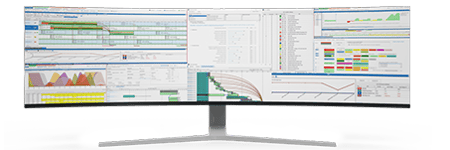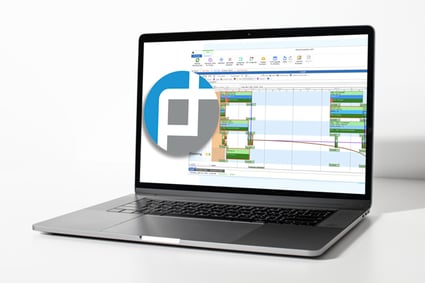Topics: Sustainability, Industrial Manufacturing, PlanetTogether Software, Integrating PlanetTogether, Real-Time Decision-Making, Cost Optimization:, Scenario Planning, Improved Collaboration, Resilience to Market Shocks, Collaborative Integration

Commodity price volatility is no longer a rare event—it’s a recurring reality. Supply chain disruptions, geopolitical tensions, and fluctuating demand cycles create a perfect storm, leaving Purchasing Managers scrambling to adapt. Adaptive planning, powered by integrated tools like PlanetTogether and enterprise systems such as SAP, Oracle, Microsoft, Kinaxis, or Aveva, has emerged as a powerful strategy to navigate this uncertainty.
This blog explores how Purchasing Managers in industrial manufacturing can leverage adaptive planning to manage volatile commodity markets effectively. We’ll delve into key strategies and the role of advanced software integrations in achieving agility and resilience.

The commodity market is influenced by a wide array of factors, including:
Global Supply Chain Shocks: Events like the COVID-19 pandemic or geopolitical conflicts disrupt supply chains, causing price spikes or shortages.
Demand Fluctuations: Shifts in consumer behavior, industrial demand, and seasonal patterns contribute to unpredictable pricing.
Regulatory Changes: Tariffs, trade agreements, and environmental regulations can create sudden price impacts.
For Purchasing Managers, these variables translate into procurement challenges. Traditional planning methods, often linear and rigid, fail to provide the flexibility needed to respond swiftly to these market dynamics.

Adaptive planning is a dynamic approach that prioritizes agility, responsiveness, and continuous improvement. For Purchasing Managers in industrial manufacturing, this means rethinking procurement strategies to ensure stability while maintaining cost efficiency. Key aspects include:
Scenario Planning
Use predictive analytics to model multiple scenarios based on possible market conditions.
Plan for contingencies such as supplier disruptions, price surges, or sudden demand spikes.
Real-Time Decision-Making
Access real-time data on commodity prices, supplier capacity, and market trends.
Make procurement decisions based on current and accurate information rather than relying solely on historical data.
Collaborative Integration
Align purchasing strategies with production schedules, inventory management, and supplier networks through integrated systems.
![]()

To effectively implement adaptive planning, integration between advanced tools like PlanetTogether and leading ERP systems (SAP, Oracle, Microsoft, Kinaxis, or Aveva) is essential. Here’s how this integration supports Purchasing Managers:
Enhanced Visibility Across the Supply Chain
PlanetTogether provides advanced scheduling and planning capabilities that align procurement activities with production needs. When integrated with ERP systems, Purchasing Managers gain:
End-to-End Visibility: Real-time data on raw material availability, supplier lead times, and production schedules.
Improved Forecasting: ERP systems provide historical and market trend data, while PlanetTogether refines these insights into actionable forecasts.
Dynamic Supplier Management
In volatile markets, supplier flexibility is critical. Integrations enable:
Supplier Scorecards: Evaluate suppliers based on performance, cost, and reliability.
Rapid Reallocation: Quickly switch between suppliers based on availability and price changes.
Inventory Optimization
Holding excess inventory ties up capital, but understocking can halt production. By integrating PlanetTogether’s scheduling tools with ERP inventory modules, Purchasing Managers can:
Optimize reorder points based on real-time consumption data.
Reduce carrying costs while ensuring material availability.
Real-Time Analytics and Dashboards
Integrated systems provide Purchasing Managers with:
Live Dashboards: Track commodity price trends, procurement costs, and supplier performance in real time.
KPI Monitoring: Monitor key metrics like procurement lead time, cost per unit, and order accuracy.
Scenario Simulations
PlanetTogether’s what-if analysis tools, when paired with ERP systems, allow Purchasing Managers to:
Test procurement strategies under different market scenarios.
Evaluate the financial impact of price fluctuations and adjust budgets proactively.

Resilience to Market Shocks
Adaptive planning helps Purchasing Managers prepare for and mitigate the impact of sudden market changes.
Cost Optimization
By dynamically adjusting procurement strategies, companies can capitalize on favorable market conditions and minimize overspending.
Improved Collaboration
Integrated systems bridge the gap between procurement, production, and supply chain teams, ensuring alignment and better decision-making.
Sustainability
Adaptive planning supports sustainable procurement practices by optimizing material usage and reducing waste.
In an era of volatile commodity markets, adaptive planning is no longer optional—it’s a requirement. Purchasing Managers in industrial manufacturing facilities can leverage integrated tools like PlanetTogether and ERP systems such as SAP, Oracle, Microsoft, Kinaxis, or Aveva to enhance visibility, optimize procurement strategies, and build resilience.
By embracing adaptive planning, you can transform procurement from a reactive process to a strategic function, ensuring your organization thrives in an unpredictable market landscape. Are you ready to take your manufacturing operations to the next level? Contact us today to learn more about how PlanetTogether can help you achieve your goals and drive success in your industry.
Topics: Sustainability, Industrial Manufacturing, PlanetTogether Software, Integrating PlanetTogether, Real-Time Decision-Making, Cost Optimization:, Scenario Planning, Improved Collaboration, Resilience to Market Shocks, Collaborative Integration
0 Comments
No video selected
Select a video type in the sidebar.







LEAVE A COMMENT